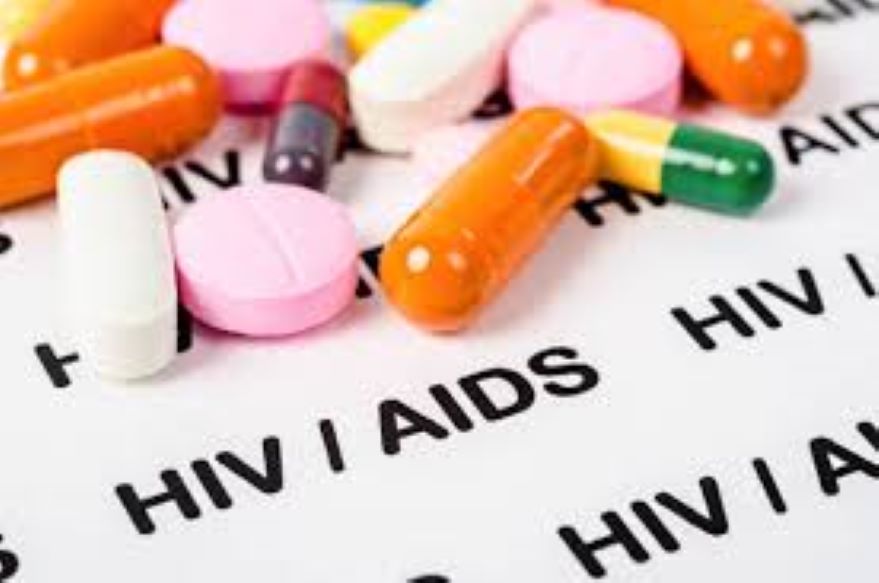By Hassan Zaggi
The Network of People Living with HIV/AIDS in Nigeria (NEPWHAN), has called on the Federal Government to establish factories for the manufacture and production of Anti Retrio Viral (ARV) Drugs in the country.
Speaking while responding to questions from our correspondent at a media briefing to mark the 2023 World AIDS Day in Abuja, the National Coordinator of NEPWHAN, Abdulkadir Ibrahim, said the call was necessary in order to avert shortage of the drugs when foreign donors eventually withdraw their support.
He commended the President Bola Ahmed Tinubu-led government for supporting people living with HIV across the country.
Ibrahim, however, said that the government need to do more by providing more domestic funding for the procurement of all services required by people living with HIV in the country.
He, however, call for the integration of HIV/AIDS services in the mainstream healthcare system in the country.
“The Federal Government is trying its best but they need to do more. We are having global crisis and our donors are reducing their funding for the fight against HIV/AIDS, in fact, there is that call for integration.
“Integrating HIV/AIDS into the mainstream health system is the best way to go but there is the need to put the system in place to ensure that people are served adequately.
“Procurement of commodity is key, government need to improve more,” he said.
While reiterating on the need to establish factories for the production of ARVs in the country, the NEPWHAN Coordinator said: “We know that the government is allocating over 4 to 5 billion naira annually for the procurement of ARV, but we want the current government to go beyond buying drugs.
“We want the government to establish plants where these commodities will be produced and manufactured here locally in Nigeria. It is cost effective and it will also reduce the fear of the donors withdrawing their funding in the country.”
He commended the government for ensuring that their is sufficient drugs to his members across the country.
“Yes, drugs are everywhere. The only challenge we have in terms of supply is only for those who are in top line drugs which are expensive and the donors are not buying them. This is the responsibility of the government of Nigeria,” he said.
He insisted that the Network will continue to work hard to improve the welfare of its members by advocating for policies that will better the lives of all those affected by HIV in the country.
“As a network, we stand united in our resolve to advocate for policies that prioritize access to comprehensive healthcare, education, and economic empowerment for all affected by HIV/AIDS. Our aim is to leave no one behind in this journey towards an AIDS-free world.
“As the National Coordinator of NEPWHAN, I stand here humbled by the dedication and passion of each member of our network. I urge you all to continue your unwavering commitment to the cause, to advocate fiercely and to support each other as we navigate the path towards our shared vision of an AIDS-free world by 2030.
“For the communities to lead, governments at all levels and partners must support the communities more than ever in all areas of the responses. As such, we look forward to continued collaboration, working and partnering with everyone working for the interest of PLWHIV to end AIDS by 2030.”
He, therefore, urged governments at all levels, especially, at the state level to increase their support and commitments in the fight against HIV towards ending AIDS by 2030.
“With communities’ leadership and government commitment, we will end AIDS by 2030,” Ibrahim reiterated.
Speaking earlier, the Director General of the National Agency for the Control of AIDS (NACA), Dr. Gambo Aliyu, vowed continued support for people living with HIV in Nigeria.
Represented by the Director, Community Prevention and Care, Dr. James Anenih, the NACA Director General said: “The world AIDS day gives us a chance to look back on what we have done and the changes we have to make to make the lives of people living with HIV better.
“It also gives us the chance to remember those that we have lost in the past. It is because of their sacrifices that we have better drugs today, because of them, we have better care services. “This occasion also provided the opportunity to tell us how you want your services to be designed and how you want your services done in your communities.”



